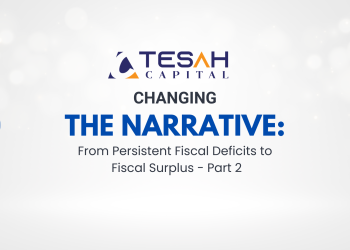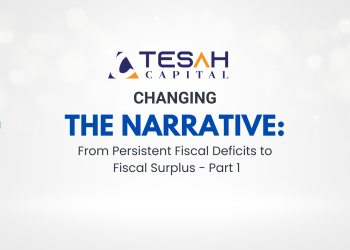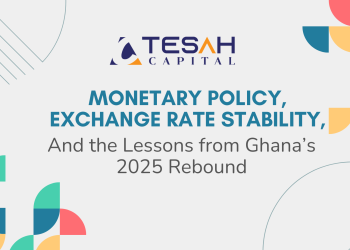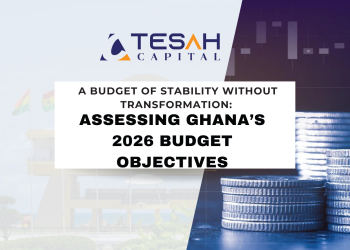Introduction
Following from our earlier discussions in part I which centred on financial markets, financial institutions and investments, where we examined the nature of financial markets, money and stylised data on mobile money in Ghana, we proceed in Part II to look at financial instruments and financial institutions which are important players in the financial system, together with the financial markets.
Financial Instruments and Financial Institutions
Financial instruments are the written legal obligation of one party to transfer something of value, usually money, to another party at some future date, under specified conditions. The enforceability of the obligation is important. Financial instruments obligate one party (person, company, or government) to transfer something to another party. Financial instruments specify payment will be made at some future date. They also specify conditions under which a payment will be made. Financial instruments are used to transfer resources from savers to investors. These include shares/stocks of companies which in the past, used to be only for the wealthy. Just like money, financial instruments act as a means of payment, store of value and can be used to transfer purchasing power into the future. So in some organisations, employees take stock options as payment for working. Today we have mutual funds and other stocks available through banks or online. Putting together a portfolio is open to everyone.
Financial instruments primarily used as stores of value include firstly, bank loans whereby a borrower obtains resources from a lender to be repaid in the future. With reference from bank of Ghana’s Summary of Economic and Financial Data for November, 2020, as at November 2020, loans amounting to GHC47.8 billion had been issued by banks in Ghana. These loans include personal, corporate, real estate etc. Financial instruments also include bonds which are debt instruments issued by a corporation or government and can be bought and sold in bond markets. While equity is a form of owned capital traded on the equity market, debt is a form of borrowed capital. The central or state governments raise money from the market by issuing government securities or bonds. In effect, the government is borrowing money from you and will pay interest to you at regular intervals. The principal amount is returned on maturity. In the same way, a company raises money from the market by selling debt market securities such as corporate bonds. As established earlier, the debt market is made up of bonds issued by government authorities and companies. In case of government bonds, the returns are guaranteed. There is a fixed rate of return promised by the government. Corporate bonds work in a similar way but there is the possibility of the issuing company defaulting hence exposing the investor to risk. Consequently, since government bonds have little or no risk as compared to corporate bonds, they offer a low return compared to corporate bonds.
As at December, 2002, there were 57 corporate bonds issued on the Ghana Fixed Income Market. These corporate issuers include Ghana Home Loans, Dalex Finance Company Ltd., Izwe Loans, Letshego Ghana, PBC Ltd among others. The total value of corporate and government bonds traded on the exchange amounted to about GHC108 billion for 2020 . These bonds, basically entitle investors to semi-annual coupon payments until the maturity of the bond, at which the face value or amount invested, are paid back to the investor. The coupons are comparable to the interest payments one receives on their deposits, however, these payments for bonds are made every six months.
Third are home mortgages. This arises because home buyers usually need to borrow using the home as collateral for the loan. They represent a specific asset the borrower pledges to protect the lender’s interests. In Ghana, the lender would usually finance about 85% of the value of the home, with the borrower providing the 15%. The mortgage is payable over a period of about 20 years. Financial institutions offering mortgage loans in Ghana include Ghana Home Loans, Stanbic Bank, Republic Bank, Ecobank and Fidelity Bank.
Financial instruments also include stocks/shares. These provide the holder of the share, ownership of a small piece of the firm and an entitlement to part of its profits called dividends. Firms sell stocks to raise money to finance their operations. It is also used as a store of wealth. Any individual or organisation interested in investing their savings, can purchase shares on the Ghana Stock Exchange. The Ghana Stock Exchange (GSE) was set up on the 26 of November 1990 and has laid down rules and regulations for companies seeking to be listed on the Exchange. The GSE operates under the rules and regulations of the Securities Industry Law 1993 (PNDCL 333) as amended. The Securities and Exchange Commission (SEC) sets rules and laws to create a level playing field for investors, brokerage firms and listed companies on the GSE. The purpose of these regulations is to boost investor confidence and protect the investor. The SEC also sets laws for unit and mutual trust operators in the country. Currently, there are 27 listed Companies, 10 brokerage firms, 5 mutual funds and 1 unit trust company listed on the GSE. Currently, the total value of shares listed on the Ghana Stock Exchange is GHC55.32 billion. Some of the companies whose shares can be bought or sold on the GSE include AngloGold Ashanti, Access Bank Ghana, Benso Oil Plantation Ltd. CalBank, Ecobank Ghana. Fan Milk Limited, GCB Bank and Cocoa Processing Company.
So how does one start investing on the GSE? One can go to any licensed brokerage such as Tesah Capital and open a trading account. They would also be required to open an account with the Central Securities Depository (CSD). You can then make the request for your broker to buy whatever stocks you wish to purchase. However, this process is not without challenges. For one thing you pay commissions on your transactions. Secondly, due to the relatively low liquidity on the Ghana Stock Exchange there could be a difference between the listed price and the price at which you can actually buy/sell the stocks. It also means that selling the stock could take some time and it may be at a price much lower than the listed price.
There are a number of indirect ways of including stocks in one’s portfolio and if you are in formal employment, you probably have exposure to stocks through the investments of your pension fund manager. First of all, one’s pension contribution to SSNIT is partly invested in stocks listed on the GSE. SSNIT is the largest investor on the GSE with GH¢2.7 billion invested in 22 stocks as at June 2018. Also, the tier 2 component (5% of your salary contributed to SSNIT) is handed over to a private pension fund manager which also invests in stocks on the GSE. If one takes the third tier option of contributing a bit of their salary to a provident fund, then that presents another exposure to stocks.
We will continue this section and look at collective investment schemes as another way of investing in financial instruments, particularly equity and debt instruments.
Conclusion
In part III, we will examine the concept of collective investment schemes which pool resources together and enable individuals to be provided with professional management of their funds mean to diversify risks and maximise their returns.
Written By;
Abel Mawuko Agoba
Lecturer, University of Professional Studies
External Research Fellow, Tesah Capital
&
Elikplimi Komla Agbloyor
Senior Lecturer, University of Ghana Business School
Chair of Research Committee, Tesah Capital






